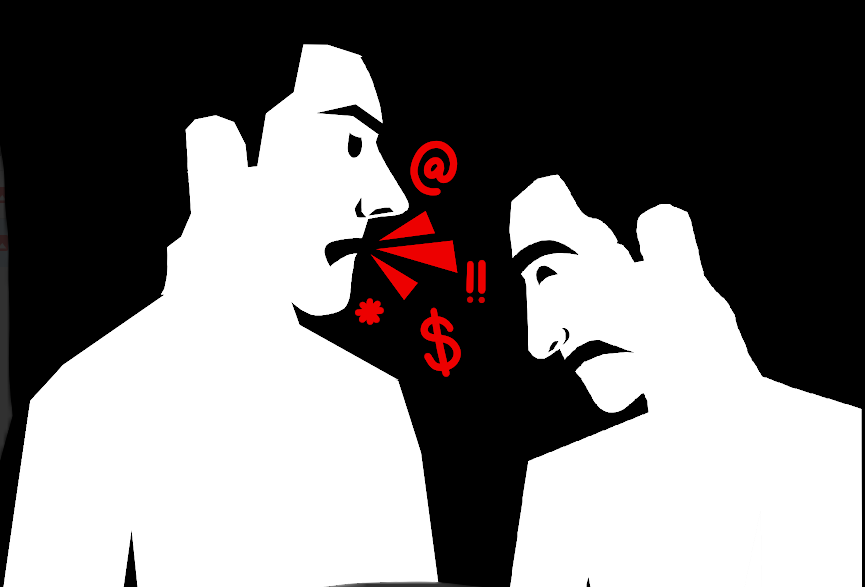Stress is prevalent at Menlo, and with finals coming up, the stress levels have increased. School Counselor, Tracy Bianchi, answers some questions about stress in general and about the stress levels at Menlo. Bianchi also gives some insight on how to decrease the stress level the average Menlo student experiences daily.
Kaitlyn Tom | Staff Reporter
Creative commons photo by Jean Pierre Gallot
Q: Do you think Menlo students handle stress well?
A: What I would say to the question is that it can often depend on the student, their current academic load and how realistic it is for them, as well as life issues and events that can also play a large part in stress loads. Each student has different things coming at them at different times. Some are dealing with loss, family issues, social connections gone awry, various academic challenges, time management, etc. I feel that Menlo itself is improving every year in helping students to be well thought out with their class interests, dedicated club, athletic arts or extra curricular time, etc. The support systems it is continuing to develop are specifically focused to promote student well being as well as to learn how to successfully manage stress in productive ways that create strength, resiliency and a true sense of accomplishment.
Q: How do you think we (Menlo students) can handle stress better?
A: Being honest with the balance that is needed for each person specifically to feel less stress and creating ways to manage all that can create stressful experiences. Making yourself not only have a free period but also finding a healthy balance between using that time wisely to accomplish academic needs that come ones way, as well as creating healthy social times to connect with friends and build deeper friendships are examples that come to mind. Also using resources on campus to work through various levels of stress from making time in the Learning Lab, meeting with teachers on specific situations that could help bring you clarity and decrease the anxious feelings of not understanding a concept are helpful examples. In addition, popping in to the counseling department and talking through things as well as getting a different perspective can also be incredibly helpful for any. There is also the Writing Center, the Peer Tutoring program, new student peer support programs focusing on mental health at Menlo, workouts with teams, with Jesse, yoga, etc. These and so many other outlets here on campus exist again with Menlo knowing how challenging high school life can be and providing outlets that can help students learn how to manage stressful times and experiences.
Q: Do you think it is up to us or the administration to reduce stress levels?
A: I think that every aspect of a students life plays a part in potentially creating stress or providing successful solutions on how to reduce it. Menlo could do its part in reducing stress but then if you have it in family life, parent expectations, self-chosen class load, or self chosen extra-curricular, athletic and/or arts load, even if Menlo is doing it’s individual part, stress is seeping into the life of that student in multiple other ways. That example could also be reversed of a student feeling their is no pressure at home but feeling pressure at school. If each area heightens their level of awareness to decrease stress and actually creates ways to help consistently follow through with that stress, reduction, a decreased overall stressful experience can certainly be altered and improved. I do feel that it is important for the student to take an active role in the involvement of that effort to reduce stress.
Q: Why do you think stress has recently become such a big issue?
A:I think stress itself has always been a part of the life of an adolescent but that lately it has been amplified for multiple reasons. The key is to look at those multiple reasons and begin to reduce the stress by more actively taking control wherever possible to reduce one’s stress load in healthy ways. Examples can be the suggestions I used above in previous questions.
Q: Do you think some stress is good stress? When does stress become “bad”?
A: Coming from my professional background, I have always thought that some stress can absolutely be beneficial. In fact, the word, “stress” itself has taken on a more negative connotation throughout the years, when originally, “distress” was the more negative term for stress. A workable level of stress can be helpful in having you experience pride at a job well done, confidence in accomplishing a project that you knew would be incredibly challenging but you worked through it and overcame it, or even a goal of crossing a finish line or bowing at a final showing of a performance in which the process took a great deal of time, energy, increased skill and effort, yet the way in which the stress was managed could give one the triumphant outcome they were seeking.








